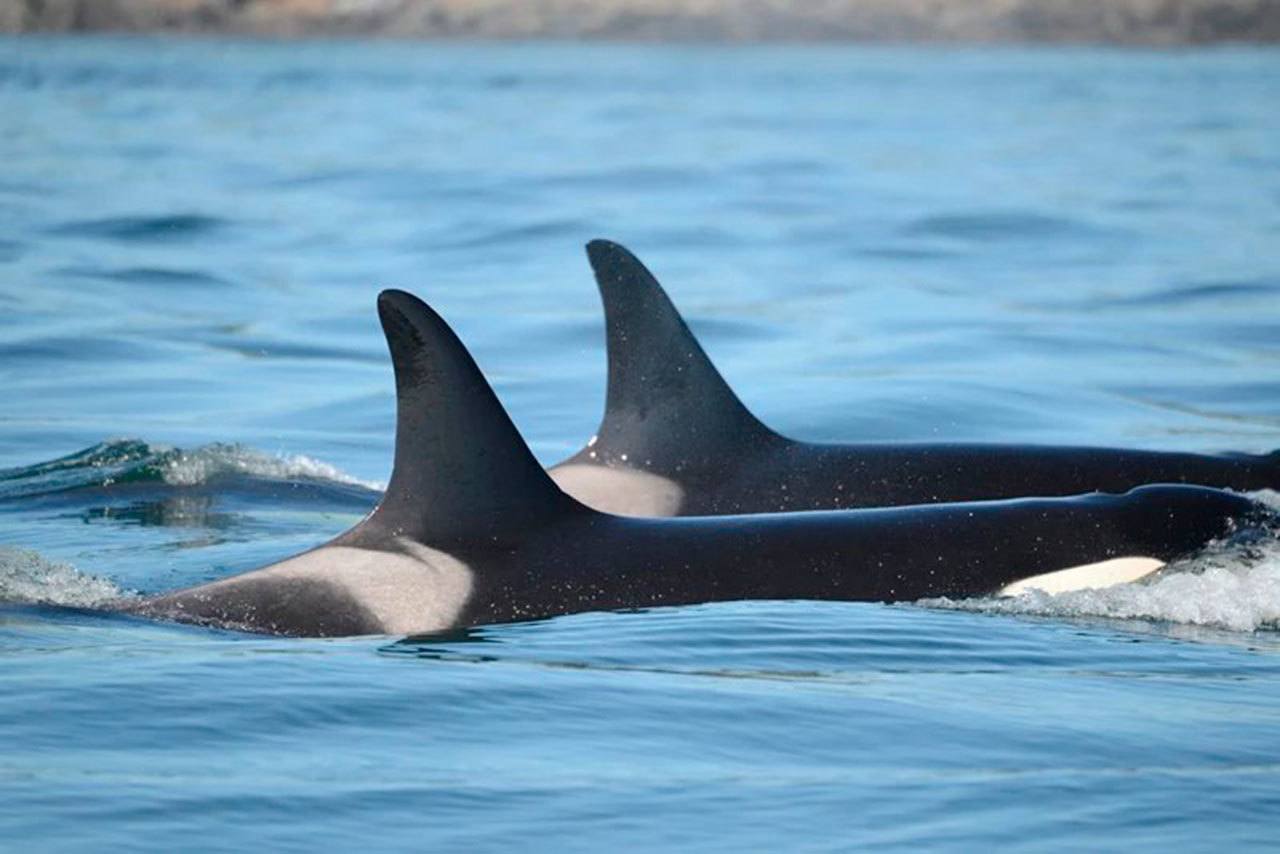They’re not killer whales, they’re lovers.
“Orcas have very intense social bonds, lifelong bonds,” said Founder of the Center for Whale Research Ken Balcomb.
Balcomb should know, he has studied the Southern resident killer whales who mainly live in the waters surrounding the San Juan Islands about half his life. Science simply proves what Balcomb can see — orcas are wired for love.
It’s thanks to their brain’s spindle neurons — the long, rod-shaped cells that process emotions and social interactions, once thought only to be in humans and apes. Of course, not by Balcomb.
“We knew the behavior long before the cells,” he said.
That behavior includes a strong mother-child bond, which prompts children to stay with their mothers their whole lives.
They empathize, said Balcomb, like when whales follow injured ones to beaches, waiting by their side until death. They mourn, said Balcomb, like in 2012 when L86 carried her injured, then deceased, daughter’s body along the Washington coast until, presumably, she was too tired to continue. Mostly, though, he said, they love to love.
“They seem to really enjoy nuzzling,” said Balcomb.
That’s what he’d witness in the 70s and 80s, at what he called Haro Strait “parties,” centered around the area’s salmon buffet, where orcas picked up mates in their rare moments mingling outside their families.
Parties aren’t thrown as much in that location today, said Balcomb, as the Snake River’s Chinook salmon, their main food source, has dwindled. They’ve been listed under the Endangered Species Act since 1990.
Their love isn’t the romantic type, said Balcomb, just maternal. Orcas aren’t monogamous and dads usually don’t stay with their families — they have to return to their own moms.
It may be interesting that orcas are wired like humans, but Balcomb sees it the other way.
“They may be a superior species actually. They’ve certainly been around longer than us,” he said. “They may think ‘those monkeys on the beach have almost whale-like intelligence.’”
Even, whale-like love.



